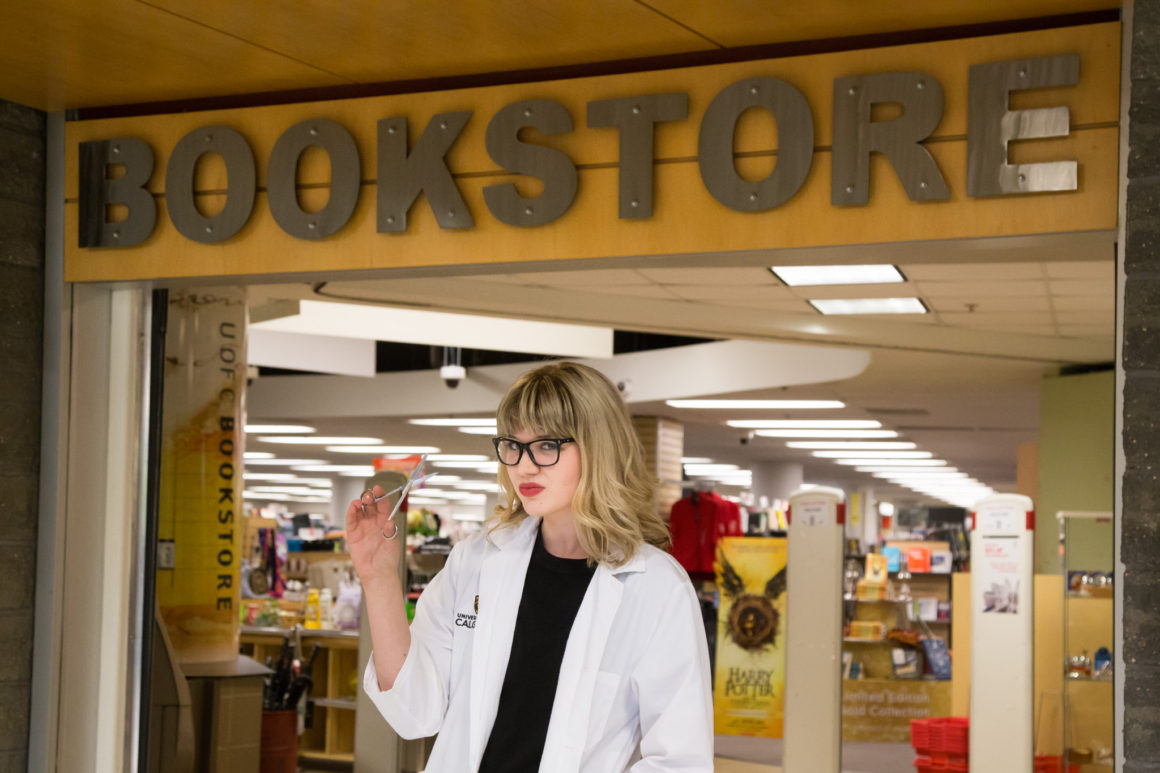
Students’ Union starts organ donation clinic to help students afford textbooks
By Derek Baker, August 30 2016 —
When it comes to buying textbooks from the bookstore, students often need to fork out massive sums of cash to purchase them. However, the University of Calgary’s Students’ Union has a plan to help alleviate the financial burden.
This year, the SU will set up a trial clinic where students can sell their organs to subsidize the cost of textbooks. The pilot project will run during the first few weeks of the semester between the bookstore and the BMO banking machines.
SU vice-president external Tristan Bray said the project will help meet student needs.
“Students constantly complain that their textbooks will cost them an arm and a leg,” Bray said. “We’ve listened to your concerns and have decided to make that proposition a reality.”
Undergraduate health sciences students will operate the clinic. Despite concerns surrounding the competency of the surgeons, the clinic assures that students are in very capable hands.
“We’re all literally almost doctors already, so there’s no risk of anything going wrong,” third-year health sciences student Jasmine Johnson said while holding the still beating heart of a student in her hands.
Students who wish to participate in the program must sign a 73-page legal waiver.
Critics raise concerns regarding the lack of aseptic practices at the clinic. Due to budget constraints, the health-science students use dissection kits available in the bookstore for their procedures.
“We do our best to ensure our kits remain completely sterile, so there’s really no need to worry,” Johnson said. “After each procedure, we dunk our tools in leftover vodka from Thursden — it’s really potent stuff.”
The program also includes students from other majors in its practice. The U of C’s brightest chemistry students will be employed to put their organic and analytical laboratory skills to the test synthesising anesthetics.
“I can usually make a fairly pure product,” third-year chemistry major Felix Foster said. “One time during lab, I managed to get a whopping 0.9 per cent yield — that was the second best in my lab group.”
The program also consists of a 20-minute talk about which organs are essential or not. It concludes with game show-esque audience participation segment called “Do I Need It To Live?”
“We’ve had a surprising amount of people show interest in the project,” Johnson said. “It’s almost as if textbooks are too expensive or something.”
Foster also feels the project can really benefit students. A kidney can go for over $200,000 on the black market — barely covering the average cost of textbooks in a semester.
“I don’t regret my decision at all. Have you seen the price of the biochemistry textbooks? Fucking ridiculous,” Foster said giggling, just coming out the anesthesia he created. “You only really need one kidney, anyway.”
Second-year sociology student Nancy Nichols also expressed her gratitude for the program.
“I have a required book that is specially customized for this class. I can’t find it for cheap in the used bookstore or on Kijiji,” Nichols said. “The SU clinic really saved my butt — or rather, allowed me to sell half of it for textbook money.”
When questioned about the legality of the program, Johnson remained tentative in her response.
“Some guy in a dark van pulls up outside of MacHall, and we just give the stuff to him,” Johnson said. “It’s mostly legal — I think.”
